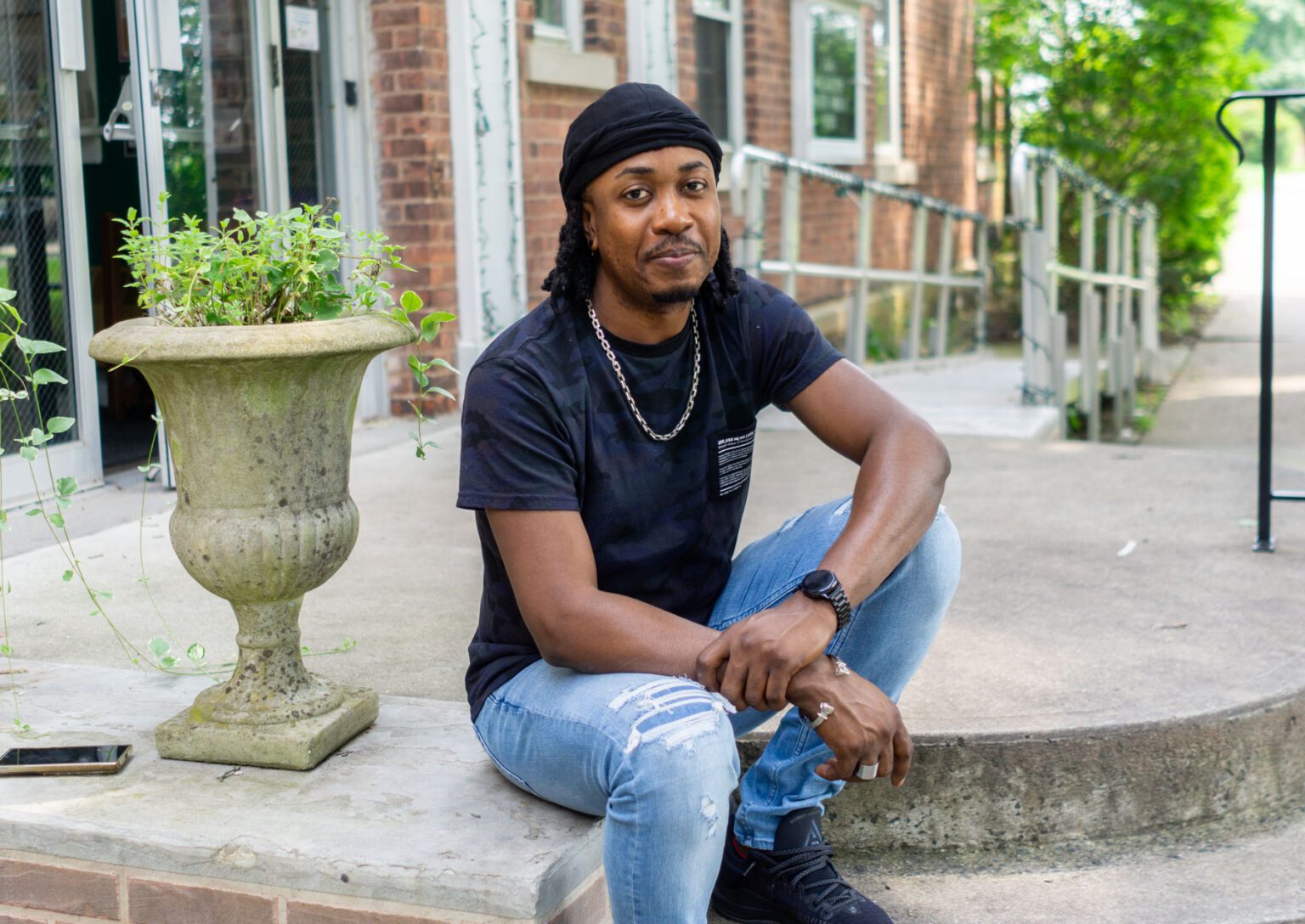© Kevin Langson
“While it’s hard to stay in place, change is even harder,” Remar states matter-of-factly when asked about his journey to the U.S.
It’s a relatable sentiment; and while the global number of refugees and other immigrants is staggering, it represents a small percentage of people who are still internally displaced or confronting persecution. Leaving and starting over in a new country are their own tumultuous events.
For Remar, a young gay man from Jamaica, life had been trying for some time; yet he knew the lay of the (homophobic) land. “I had mastered the art of being invisible because that’s what you need to survive. In Jamaica, what we see is sexuality: are you gay or straight? Everything is tied to your sexuality. If someone hits your car, and in the confrontation you come across as being too effeminate or gay, then you’re automatically wrong,” he explains.
Even at university, where one might expect more accepting attitudes, Remar experienced a specific sort of repudiation. Many closeted gay students and faculty who could pass as straight, were actively cruel towards men who were visibly gay on campus. They thought this would be a distraction from their own sexual differences, but it was moreover destructive for gay men like Remar.
In Jamaica, since it is not culturally acceptable to befriend individuals within the LGBTQ community, Remar struggled finding allies. He longed for support to help him through difficult times, including threats to his safety and attempts to flee the country to build a new life.
Fortunately, Remar had a gay friend from Jamaica in New York who could help. Remar had been to New York several times and maintained a U.S. visa. He had a clear exit strategy when matters in Jamaica reached a tipping point. This happened when his apartment in the capital, Kingston, was ransacked. The police had the culprit in custody soon after, but he was quickly set free without accountability. Once the officers clocked Remar as gay, they removed themselves from the case after having expressed doubt about his testimony. He began receiving threats. The thief knew then that he could return with impunity and could also trace where Remar worked if he really wanted to wreck his life.
“I’ve lived in ten different apartments over the course of ten years. People sometimes just say something and a rumor stays and that causes an uproar,” Remar says, also mentioning that he feels lucky to have made it out alive. He had friends who inquired with the police about his case and ended up paying with their lives.
Remar made it through the catastrophic weeks following the robbery, holding it together at his management job and convincing his university to allow him to finish his degree online.
Having a friend in New Haven led him to Connecticut. He began his asylum claim and sought out the help of IRIS. He expresses gratitude and talks about his experience with Brooke C., the supportive therapist on staff at IRIS, as the most meaningful way that the organization has helped him. “She talked me through it, and I was able to relax a bit, understand who I was and how to move forward,” Remar reflected about their sessions.
Even after fleeing, Remar’s social life here in the States can be rough. There is the internalized homophobia that rears its head at odd moments. Remar kept returning to how ingrained disdain for gays is in his home culture.
In spite of struggles, Remar has a stable job working the night shift at Wal-mart, where he says again he has learned the lay of the land – who to trust and who not to trust in regards to his sexual identity. He has experience in project management and has the long term goal of being a consultant. Remar exudes a strength, as if he has gotten through the worst part of a storm, and gives himself grace, acknowledging that it takes time to establish oneself in a new home.



